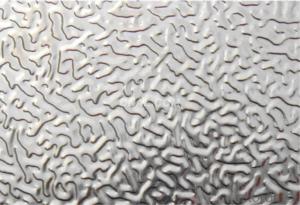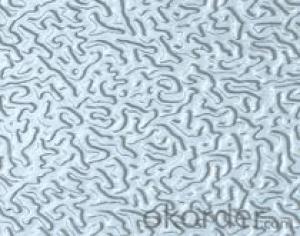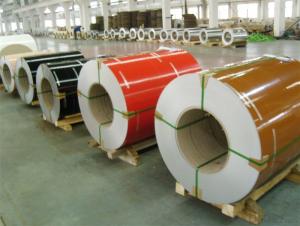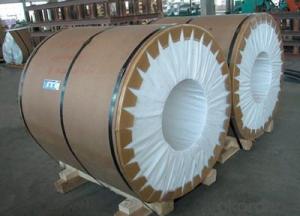Embossed Aluminum Stucco for Air-Conditionary
- Loading Port:
- Shanghai
- Payment Terms:
- TT OR LC
- Min Order Qty:
- 4 m.t.
- Supply Capability:
- 100000 m.t./month
OKorder Service Pledge
OKorder Financial Service
You Might Also Like
1.Structure of Embossed Aluminum Stucco for Air-Conditionary :
Embossed Aluminum Stucco for Air-Conditionary is widely used in the manufacturing of air-conditionary.Embossed Aluminum Stucco for Air-Conditionary is popular in Africa, Middle East and America markets
2.Main Features of the Embossed Aluminum Stucco for Air-Conditionary:
• Beautiful parten
• High manufacturing accuracy
• High strength of extension and yield
• Well packaged
• No marks, no scratch, no excessive oil
3. Embossed Aluminum Stucco for Air-Conditionary
Alloy: 1050, 1060, 1070, 1100, 3003, 3004, 3005, 3105, 5052, 5083, 5754, 8011, 8006
Temper: H14, H16, H18, H22, H24, H26, H32, O/F
Thickness: 0.2mm-20mm
Width: 10mm-1500mm
4. Production of Embossed Aluminum Stucco for Air-Conditionary
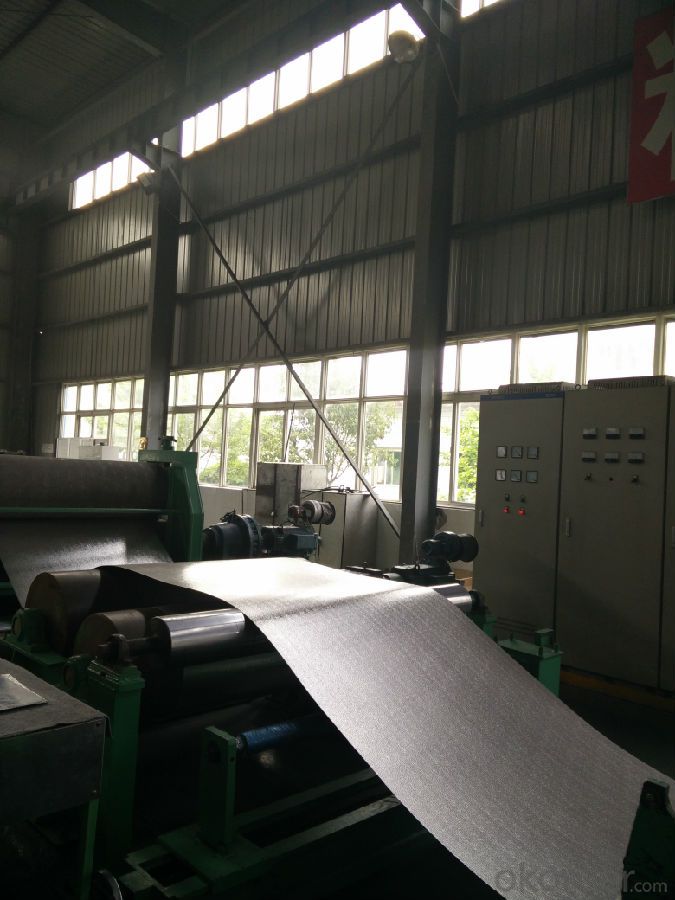
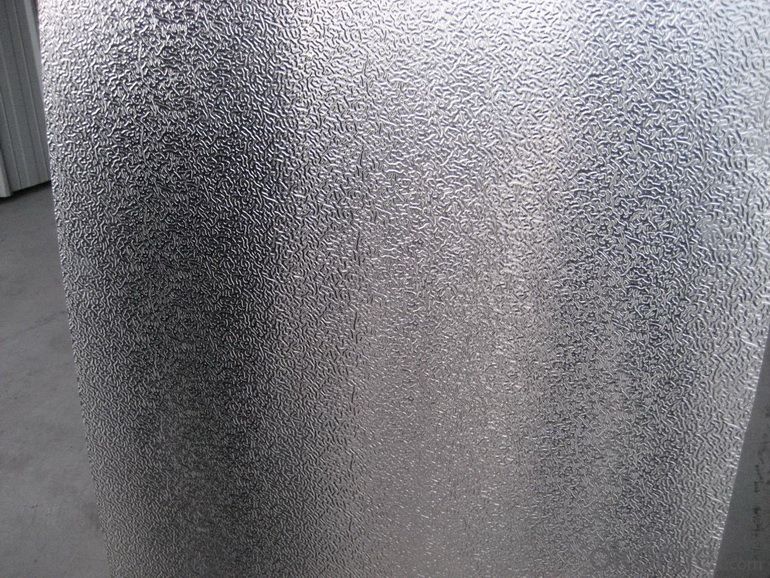
5.FAQ
We have organized several common questions for our clients,may help you sincerely:
① How about your company?
A world class manufacturer & supplier of aluminum coil and alloy blanks. Aluminum production base is comprised of 18 aluminum annealers, 10 coil and foil mills, 4 continuous production lines, 2 hot rolling production line and 3 prepainted lines.
Export 5000 tons per month to Asia, America and Middle East. Always do the best for our clients.
②Can you guarantee the quality of the products?
We are responsible for the quality of materials to get a long-term cooperation with clients in a reasonable period of time and we are glad to arrange and coordinate any third party inspection for you.
③What is the delivery time after purchase?
35 day after receiving client’s deposit or correct LC
- Q:Can aluminum coils be customized?
- Indeed, it is possible to customize aluminum coils to meet specific requirements. These coils possess remarkable versatility, as they can be tailored in terms of thickness, width, length, alloy composition, surface finish, and other specifications. Consequently, they find extensive utility across diverse industries, including construction, automotive, aerospace, electronics, and packaging. The customization of aluminum coils involves various processes, such as slitting, cutting-to-length, embossing, painting, and coating. This remarkable flexibility in customization empowers manufacturers to satisfy the distinct demands of their clientele, thereby ensuring that the aluminum coils are perfectly optimized for their intended applications.
- Q:Are there any limitations to the maximum coil diameter of aluminum coils?
- There exist limitations on the maximum coil diameter of aluminum coils. Factors such as the type and thickness of the aluminum, the coiling equipment, and the intended application of the coil determine the maximum coil diameter. Thinner and more ductile aluminum alloys generally allow for larger coil diameters. However, maintaining the structural integrity of the coil and preventing deformation, wrinkling, or damage during handling and transportation becomes increasingly challenging as the coil diameter increases. Moreover, the coiling equipment may have its own restrictions on the maximum diameter it can handle. Hence, it is crucial to take these factors into consideration when determining the maximum coil diameter for aluminum coils.
- Q:Are there any limitations or restrictions on the use of aluminum coils?
- Yes, there are limitations and restrictions on the use of aluminum coils. Some of the main limitations include: 1. Corrosion: Aluminum is prone to corrosion, especially when it comes into contact with certain chemicals or environments. Therefore, it may not be suitable for applications where it will be exposed to corrosive substances or in highly corrosive environments. 2. Strength: While aluminum is a lightweight material, it is not as strong as other metals like steel. This can limit its use in applications that require high strength or load-bearing capabilities. 3. Temperature sensitivity: Aluminum has a lower melting point compared to other metals, which can be a limitation in applications where high temperatures are involved. It may not be suitable for use in certain industrial or high-temperature environments. 4. Electrical conductivity: While aluminum has good electrical conductivity, it is not as conductive as copper. This can limit its use in applications where high electrical conductivity is required, such as in electrical wiring or power transmission. 5. Cost: Aluminum can be more expensive than other metals, limiting its use in applications where cost is a significant factor. In such cases, alternative materials may be preferred. 6. Formability: Aluminum coils can be difficult to form or shape compared to some other metals. This limitation may restrict their use in applications where complex shapes or tight tolerances are required. It is important to consider these limitations and restrictions when selecting aluminum coils for a particular application. Careful evaluation of the specific requirements and constraints will help determine whether aluminum coils are suitable or if alternative materials should be considered.
- Q:What are the common coil inner diameters for aluminum coils?
- The common coil inner diameters for aluminum coils typically range from 150mm to 600mm, depending on the specific application and industry requirements.
- Q:What are the cost implications of using aluminum coils?
- The cost implications of utilizing aluminum coils can differ based on a variety of factors. To begin with, the expense of aluminum coils can be higher in comparison to other coil types, like copper coils. This is mainly because of the increased cost of raw materials and the energy-intensive manufacturing process involved in producing aluminum coils. Consequently, the initial purchase cost of aluminum coils may be higher when compared to other alternatives. Nevertheless, it is essential to consider the long-term cost implications. Aluminum coils are renowned for their durability and resistance to corrosion, which can result in an extended service life in contrast to other materials. This, in turn, can lead to reduced costs for maintenance and replacement over time. Additionally, aluminum is lightweight, making it easier to handle and transport, potentially resulting in reduced labor and transportation costs. Another aspect to consider is the energy efficiency of aluminum coils. Aluminum possesses excellent heat transfer properties, allowing for efficient heat exchange in various applications, such as HVAC systems or refrigeration units. This can translate to lower energy consumption and subsequently lower operating costs in the long run. Furthermore, aluminum is a highly recyclable material, which can contribute to cost savings and environmental benefits. Recycled aluminum can be utilized in the production of new coils, reducing the need for virgin materials and lowering overall costs. It is important to note that these cost implications may vary depending on the specific application and usage requirements. Factors such as the size of the system, installation complexity, and maintenance practices can also impact the overall cost-effectiveness of employing aluminum coils. In summary, while aluminum coils may have a higher initial purchase cost, their durability, resistance to corrosion, energy efficiency, and recyclability can result in long-term cost savings and environmental benefits.
- Q:Can aluminum coils be used for food processing conveyor systems?
- Aluminum coils are a viable option for food processing conveyor systems. The food processing industry favors aluminum for its advantageous properties. To begin with, aluminum's lightweight nature facilitates effortless installation and transport. This aspect proves especially valuable for conveyor systems that necessitate frequent reconfiguration or relocation. Moreover, aluminum exhibits exceptional resistance to corrosion, a pivotal attribute in food processing environments where exposure to moisture, chemicals, and food particles is prevalent. Additionally, aluminum's hygienic attributes make it easy to clean and maintain, ensuring adherence to food safety standards. Lastly, aluminum coils can be effortlessly molded and customized to meet the specific requirements of conveyor systems, thereby facilitating efficient and effective food processing operations. Consequently, aluminum coils emerge as a fitting choice for food processing conveyor systems.
- Q:Why 5052 turn black after annealing during the production of aluminum alloy?
- It has been sooted.
- Q:Can aluminum coils be used in high-pressure or high-temperature environments?
- Aluminum coils are not typically recommended for use in high-pressure or high-temperature environments. While aluminum is known for its high thermal conductivity and corrosion resistance, it has certain limitations when exposed to extreme conditions. In terms of high-pressure environments, aluminum coils may not possess the necessary strength and durability required to withstand the forces exerted by the pressurized system. Aluminum has a lower tensile strength compared to other metals like steel or titanium, which makes it more prone to deformation or failure under high pressure. Therefore, it is generally advised to use materials with higher strength and pressure ratings in such scenarios. Similarly, aluminum coils have a relatively low melting point compared to metals like steel or copper. The melting point of aluminum is around 660 degrees Celsius (1220 degrees Fahrenheit), which makes it susceptible to damage or failure in high-temperature environments. In applications where the temperature exceeds the melting point of aluminum, it is recommended to use materials with higher temperature resistance. However, it is worth mentioning that there are specialized alloys and coatings available that can enhance the high-temperature and high-pressure capabilities of aluminum. These modifications can improve its strength, heat resistance, and corrosion resistance, making it suitable for certain applications in extreme conditions. Nonetheless, the specific requirements and limitations of the intended environment should be carefully considered before deciding to use aluminum coils. Consulting with experts and considering alternative materials may be necessary to ensure the safety and efficiency of the system.
- Q:Can aluminum coils be used for seamless gutters?
- Yes, aluminum coils can be used for seamless gutters. Aluminum is a popular choice for seamless gutter installations due to its durability, lightweight nature, and resistance to corrosion. The coils can be easily shaped and formed to create a seamless gutter system that effectively directs rainwater away from the building.
- Q:What is the elongation of aluminum coils?
- The elongation of aluminum coils refers to the amount of stretching or deformation that can occur in the material before it breaks or becomes permanently damaged. It is a measure of the ductility or ability of aluminum to withstand tensile forces without fracturing.
1. Manufacturer Overview |
|
|---|---|
| Location | |
| Year Established | |
| Annual Output Value | |
| Main Markets | |
| Company Certifications | |
2. Manufacturer Certificates |
|
|---|---|
| a) Certification Name | |
| Range | |
| Reference | |
| Validity Period | |
3. Manufacturer Capability |
|
|---|---|
| a)Trade Capacity | |
| Nearest Port | |
| Export Percentage | |
| No.of Employees in Trade Department | |
| Language Spoken: | |
| b)Factory Information | |
| Factory Size: | |
| No. of Production Lines | |
| Contract Manufacturing | |
| Product Price Range | |
Send your message to us
Embossed Aluminum Stucco for Air-Conditionary
- Loading Port:
- Shanghai
- Payment Terms:
- TT OR LC
- Min Order Qty:
- 4 m.t.
- Supply Capability:
- 100000 m.t./month
OKorder Service Pledge
OKorder Financial Service
Similar products
New products
Hot products
Hot Searches
Related keywords
